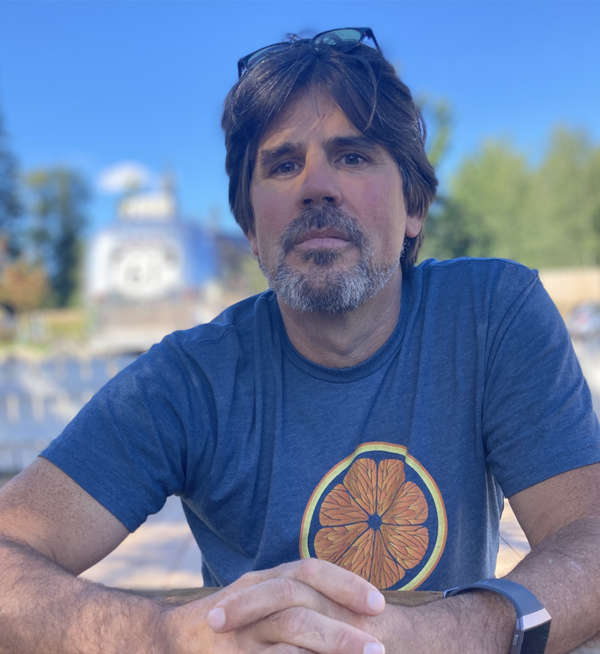The Citizenship Clinic
Adoptees United’s Citizenship Clinic assists intercountry adopted people with US citizenship or immigration issues. The clinic’s services include legal screenings, consultation and advice about legal options, and legal representation to secure a Certificate of Citizenship or, if needed, a Certificate of Naturalization.
Basics • Priorities • Intake • Attorneys • Donate • Resources • FAQ
The basics.
The Citizenship Clinic provides necessary legal representation and resources to the adoptee community, with an initial focus on US citizenship issues.
Free and Low Cost Legal Services for Adopted People
Who We Help
The clinic provides legal services to intercountry adopted people who were adopted to the United States and have issues with US citizenship (or have questions about it). Services may include legal screening for citizenship status, discussion of options and advice, and legal representation to secure a Certificate of Citizenship. It may also involve pro bono representation in naturalization or other cases.
Case Priorities
The clinic’s legal services are currently limited to legal screenings, general advice, and legal representation to secure a Certificate of Citizenship (an N-600). While we are already providing representation for naturalization applications, though ongoing naturalization cases will depend on capacity, growth, funding, and expenses that the client will need to pay, such as the N-400 filing fee and potential travel.
How It Works
The process begins with completing a confidential intake with the Adoptee Rights Law Center. Gregory Luce, the executive director of Adoptees United and the founding attorney with Adoptee Rights Law Center, reviews the intake to determine if the matter meets the Citizenship Clinic’s priorities for legal assistance. After consultation, he will also make a decision about what legal services may be necessary—or decide that the case does not merit representation or further advice or service.
In general, the process for an accepted case may involve one or many all of the following:
- Legal screening for US citizenship issues, which generally involves meeting with the client, whether by phone or by Zoom, obtaining US immigration records, reviewing those records, and working with the client to outline citizenship or other issues that may be present;
- Receiving advice from an attorney as to next steps, if any further steps are warranted;
- Discussing those next steps, if any; and
- Legal representation to secure a Certificate of Citizenship (N-600).
- Possible pro bono representation or referral to an attorney or other resources for naturalization (N-400) cases.
Costs and Expenses
Legal services provided by the clinic are free.
Pro bono work covers only legal services that an attorney and paralegal provide. It does not include expenses that are necessary for a case, such as USCIS filing fees or reimbursable expenses that exceed $25. These expenses are paid by the client.
Confidentiality
All services and communications between the client and attorneys are strictly confidential and are not shared with anyone other than the licensed attorney or the paralegal/assistant working under the supervision of that attorney. The only information shared with Adoptees United is non-identifying statistical information about the number of cases referred, handled, or completed, as well as the general types of cases, de-identified client demographics, and the number of cases accepted or declined for representation.
Priorities.
Legal Screening
Completing an intake, meeting by phone or virtually with an attorney to discuss initial issues, obtaining and reviewing US immigration records, and determining what citizenship issues, if any, exist.
Representation
Legal representation to obtain USCIS documents and to apply for and obtain a Certificate of Citizenship (N-600) or to naturalize (N-400).
Advice
Discussing current immigration status and what steps, if any, are necessary to secure proof of U.S. citizenship—or what steps may require referral to another attorney (e.g., naturalization).
Referral
Referral to an attorney or other resources if a case cannot be be handled under the clinic’s current priorities. This could include referrals for naturalization cases.
Attorneys.
The clinic is under the direction of the Adoptee Rights Law Center, which handles clinic cases and is responsible for training volunteer attorneys and paralegals.
Directed by the Adoptee Rights Law Center
Adoptees United has contracted with Adoptee Rights Law Center to oversee the clinic and manage clinic cases. Gregory Luce handles cases referred to the clinic. He also trains attorneys and paralegals to provide pro bono or low cost legal services for the clinic.
About Adoptee Rights Law Center

Adoptee Rights Law Center PLLC
Gregory Luce, Attorney
Gregory Luce is an adoptee rights and immigration attorney who was born and adopted in the District of Columbia. He is the founder of the Adoptee Rights Law Center and the executive director of Adoptees United Inc. He is considered a national expert on issues related to adoptee rights, including birth records, identity documents, and U.S. citizenship.
Getting started.
Complete a short and confidential intake to determine if the clinic can help you.
Confidential Intakes
If you are an intercountry adoptee who was adopted to the United States and you have questions about U.S. citizenship, complete a confidential intake with Adoptee Rights Law Center.
Clicking on the button/link will take you to the Adoptee Rights Law Center website for completion of the clinic intake form. Further information and instructions are provided after completing the intake.
Pay it forward.
We need your help to launch the clinic, keep it going, and ultimately expand it to cover additional legal services.
Donate to support the clinic’s future
To launch, operate, and expand the clinic, we need to raise at least $20,000, enough to fund the clinic for two years, from July 1, 2024, to June 30, 2026. We are asking the community as a whole— as well as the broad adoption-related community more specifically— to contribute toward this goal.
Raising funds will provide stability for the clinic and will allow it to expand into additional legal services, including naturalization cases. Please contact us if you wish to make a significant or ongoing donation.
Resources.
Key documents and resources that form part of the Clinic.
Retainers, Forms, Resources
Sample Retainer Agreement
Legal services are provided only after the client and the attorney agree to and sign a retainer agreement. To understand the content of a retainer agreement, a sample clinic retainer agreement is here. The sample agreement involves legal services to obtain a Certificate of Citizenship. It is a representative agreement; other agreements will vary by type of service and any considerations that may be unique to the client or situation.
Frequently Used USCIS Forms
While no two cases are identical, the most frequently used forms for intercountry adoptees who may have US citizenship issues include:
- N-600 (Application for Certificate of Citizenship)
- N-400 (Application for Naturalization)
- N-565, Application for Replacement Naturalization/Citizenship Document
- I-90, Application to Replace Permanent Resident Card (Green Card)
These forms are often completed and filed online through the attorney’s USCIS account. The Citizenship Clinic requires online filing unless circumstances require paper filing.
Note: current priority cases involve obtaining USCIS records, providing advice about options, and filing N-600 or N-400 forms on behalf of clients.
Resources
getTING your own immigration records
Latest.
AU news and events that impact intercountry adopted people.



